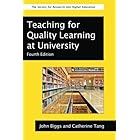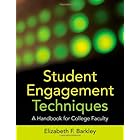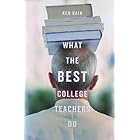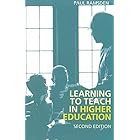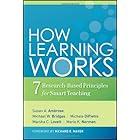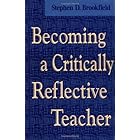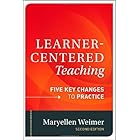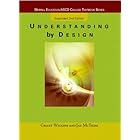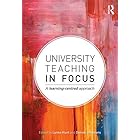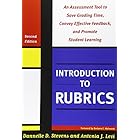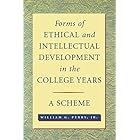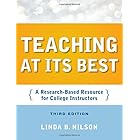- November 15-18, 2016 Gartner Symposium/ITxpo. GOA, India. http://www.gartner.com/technology/symposium/
- November 28-December 2, 2016 International Conference on Computers in Education (ICCE), 24th. Organized by the Asia-Pacific Society for Computers in Education (APSCE). Bombay, India. http://www.et.iitb.ac.in/icce2016/
- November 24-26, 2015 National Convention on Knowledge, Library and Information Networking (NACLIN), 18th. Gulbarga University, Gulbarga, India. http://www.naclin.org/
- Conference on Technology for Education, 8th. Indian Institute of Technology Bombay, Mumbai, India. http://www.ask4research.info/t4e/2016/ or https://www.computer.org/portal/web/conferences/calendar
- December 9-10, 2016 Institute of Electrical and Electronic Engineers (IEEE) International Conference on MOOCs, Innovation and Technology in Education, 4th. Thiagarajar College of Engineering, Madurai, India. http://www.mite2016.com/
- August 7-9, 2016 Australian Council for Educational Research (ACER) Conference: Improving STEM Learning – What Will It Take? (STEM = science, technology, engineering and mathematics) Brisbane Convention and Exhibition Centre, Brisbane, Australia. https://www.acerinstitute.edu.au/rc/overview
- August 15, 2016 iPad: The Intersection of Pedagogy and Technology. Organized by Critical Agendas. Sydney, Australia. http://www.criticalagendas.com.au/victoria/ipad-the-intersection-of-pedagogy-and-technology-aug15-16
- August 23-25, 2016 InfoComm Integrate (professional audiovisual, entertainment, ICT marketplace). Sydney Olympic Park, Sydney, Australia. http://www.infocomm.org/cps/rde/xchg/infocomm/hs.xsl/22174.htm
- August 25-27, 2016 Leading a Digital School Conference. Crown Conference Centre, Melbourne, Australia. http://www.iwb.net.au/
- August 27-29, 2016 MoodleMoot Australia. Perth, Western Australia. Australia. https://mootau.moodlemoot.org/course/view.php?id=62 or https://moodle.org/calendar/view.php
- August 28-31, 2016 Blackboard Teaching and Learning Conference. Sydney, Australia. http://experience.blackboard.com/TLC-Sydney/
- August 29-September 2, 2016 Australian Library and Information Association (ALIA) National Conference. Adelaide Convention Centre, Adelaide, South Australia, Australia. https://www.alia.org.au/events/conferences-symposiums-and-summits
- September 2-4, 2016 The Education Show. Melbourne Convention and Exhibition Centre, Melbourne, Australia. http://www.theeducationshow.com.au/
- September 9-11, 2016 International Computing Education Research (ICER) Conference, 12th, annual. Melbourne, Australia. http://icer.hosting.acm.org/
- September 15-16, 2016 National Vocational Education and Training (VET) Conference. Gold Coast, Australia. http://www.velgtraining.com/national-conference
- September 26-27, 2016 Australian College of Educators (ACE) National Conference. Sydney, Australia. https://www.austcolled.com.au/events/category/ace-2016-national-conference
- September 26-27, 2016 Joint Conference on Serious Games (JCSG): Serious Games Development and Applications (SGDA), 7th and GamesDays, 6th. Brisbane, Australia. http://jcsg2016.org/
- September 27-29, 2016 MoodleMoot Australia 2016. Perth, Australia. https://mootau.moodlemoot.org/course/view.php?id=62
- September 28-29, 2016 iPadpalooza. St. Hilda’s School, Gold Coast, Australia. http://www.ipadpaloozagc.com/
- September 28-30, 2016 Australian Council for Educational Leaders (ACEL) National Conference: Leadership with Insight and Innovation. Melbourne, Australia. http://www.acel.org.au/acel/ACELWEB/Events/ACEL_National_Conference_2016/ACELWEB/Events/Conference_2016/Conference_2016_About.aspx?hkey=a9eccdd6-1a90-430c-96d8-d7ffbd6f5519
- September 29-30, 2016 Australian Collaborative Education Network (ACEN) National Conference. Macquarie University, Sydney, New South Wales, Australia. http://acen.edu.au/2016-acen-conference/
- September 29-October 2, 2016 Australian Council for Computers in Education Conference (ACEC), biennial. Brisbane, Queensland, Australia. http://acec.acce.edu.au/ or http://acec2014.acce.edu.au/
- September 21-23, 2015 Higher Education Research Group of Adelaide (HERGA) Conference, 10th. Adelaide, Australia. http://www.herga.com.au/
- September 30-October 2, 2015 Australian Society for Music Education (ASME) Conference: Music – Educating for Life. Adelaide, Australia. http://asme2015.com.au/
- October 10-11, 2016 Association of Independent Schools Digital Technologies Conference: The Bigger Picture. St. Joseph’s College, Hunters Hill, Sydney, New South Wales, Australia. http://www.aisnsw.edu.au/CoursesEvents/Pages/CourseDetail.aspx?cid=55b5bdc3-0262-4316-af4e-edba8f5db059 or http://www.aisnsw.edu.au/CoursesEvents/Pages/default.aspx?cat=CNFR
- October 13-14, 2016 National Adult Training and Assessment
Conference: Improving Quality, Reducing Risks. Organized by the
Australian Council for Educational Research (ACER). William Angliss
Institute of Technical and Further Education (TAFE), Melbourne,
Australia. https://www.acer.edu.au/nallnac
- October 14-15, 2016 Australian Curriculum Studies
Association (ACSA) Conference: STEM, STEAM or HASS – Interrogating
Models of Curriculum Integration. SMC Conference and Function Centre,
Sydney, Australia. http://www.acsa.edu.au/pages/page656.asp
- October 16, 2016 iDesignX: Australian Instructional Design Conference. Sydney, Australia. http://www.idesignx.net.au/
- October 18, 2016 LearnX, 10th. Melbourne Convention Center, Melbourne, Australia. http://www.learnx.net/
- October 18-21, 2016 Australian International Education Conference
(AIEC): Connectivity – The Heart of International Education. Melbourne
Convention and Exhibition Centre, Melbourne, Australia. http://aiec.idp.com/
- October 19-20, 2016 Information Technology Services (ITS) in Tertiary Education 3rd annual. Melbourne, Australia. http://www.criterionconferences.com/event/its/
- October 23-26, 2016 mLearn: World Conference on
Mobile and Contextual Learning – Mobile learning futures, Sustaining
quality research and practice in mobile learning , 15th.
Organized by the International Association for Mobile Learning
(IAmLearn). Hosted by the University of Technology Sydney (UTS), Sydney,
Australia. http://www.mlearn2016.com/
- October 24-25, 2016 Learning@Work: Technology and Strategy for Workplace Learning. Australian Technology Park, Sydney, Australia. http://acevents.com.au/learningatwork/
- October 25-26, 2016 Association of Independent Schools Education Research Symposium: Where Research Meets Practice. Waterview in Bicentennial Park, Sydney Olympic Park, Sydney, Australia. http://www.aisnsw.edu.au/CoursesEvents/Pages/CourseDetail.aspx?cid=022daa80-3187-405d-80d3-6af94a9128d9 or http://www.aisnsw.edu.au/CoursesEvents/Pages/default.aspx?cat=CNFR
- October 31-November 3, 2016 Open and Distance Learning Association of Australia (ODLAA) Education Summit: Open, Flexible, Distance Education and eLearning, biennial. Perth, Western Australia, Australia. https://odlaa.org/summit-2015/
- November 7-9, 2016 Learning for Change and Innovation
World Congress. Organized by the Global Centre for Work-Applied
Learning (GCWAL) and the Action Learning Action Research Association
(ALARA). Hilton Hotel Adelaide, Adelaide, Australia. http://gcwal.com.au/2016congress/
- November 7-9, 2016 Creative Innovation: The Exponential Shift – Making Transformation Happen. Melbourne, Australia. http://www.creativeinnovationglobal.com.au/
- November 16-18, 2016 National Learning and Teaching Conference. Organized by Pearson Academy. Melbourne, Australia. http://www.pearsonacademy.com.au/ltcon
- November 20-23, 2016 International Council for Open and Distance Education (ICDE) Presidents’ Summit: New Era of Leadership and Quality. Macquarie, Sydney, Australia. http://www.icde.org/
- November 21, 2016 Learning and Teaching Collaboratively in Open Learning Spaces. Organized by Critical Agendas. Jasper Hotel, Melbourne, Australia. http://www.criticalagendas.com.au/victoria/learning-and-teaching-collaboratively-in-open-learning-spaces-nov21-16
- November 27-December 1, 2016 Australian Association for Research in Education (AARE): Transforming Education Research. Melbourne Cricket Ground, Melbourne, Victoria, Australia. http://www.aareconference.com.au/
- November 28-30, 2016 Australasian Society for Computers in Learning in Tertiary Education (ASCILITE) Conference: Show Me the Learning, 32nd. Hosted by the University of South Australia. Adelaide Convention Centre, Adelaide, Australia. http://ascilite.org/2016-conference/
- November 30-December 3, 2016 Technology Education Research Conference, 9th, biennial. University of South Australia, Magill, Australia. http://www.techedconferenceaustralia.com/
- December 4-7, 2016 Australasian Association for Engineering Education (AAEE) Annual Conference: The Changing Role of the Engineering Educator for Developing the Future Engineer, 27th. Hosted by Southern Cross University. Coffs Harbour, Australia. http://www.aaee.net.au/index.php/resouces/aaee-conference
- January 16-20, 2017 Linux.Conf.Au. Wrest Point Convention Centre, Hobart, Australia. http://linux.conf.au/ or hobart.lca2017.org
- January 20-23, 2017 International Conference on Intelligent Computing and Applications (ICICA), 6th. University of Canberra, Canberra, Australia. http://www.icica.org/
- January 31-February 3, 2017 Australasian Web Conference, Geelong, Victoria, Australia. http://www.aut.ac.nz/study-at-aut/study-areas/computer-mathematical-sciences/news-and-events/events-folder/the-australasian-web-conference-awc-2017 or http://jiyu.cmslamp14.aut.ac.nz/awc2017/home.html
- February 13-17, 2017 Australian Library and Information Association (ALIA) Online Conference, biennial. Hilton Hotel, Sydney, Australia. https://www.alia.org.au/events/conferences-symposiums-and-summits
- February 14-17, 2017 Microsoft TechEd Australia. Gold Coast Convention and Exhibition Centre, Broadbeach, Queensland, Australia. https://msftignite.com.au/
- March 1-3, 2017 Universities Australia Higher Education Conference. National Convention Centre, Canberra, Australia. https://www.universitiesaustralia.edu.au/conference or https://www.universitiesaustralia.edu.au/
- March 23-24, 2017 Future Schools Expo. Melbourne Convention and Exhibition Centre, Australia. http://futureschools.com.au/
- April 3-7, 2017 World Wide Web Conference, 20th. Perth, Western Australia, Australia. http://www.www2017.com.au/
- May 8-10, 2017 The Higher Education Technology Agenda (THETA): Connecting Minds – Creating the Future, biennial. Sponsored by the Council of Australian University Directors of Information Technology (CAUDIT), Council of Australian University Librarians, and the Australasian Council on Open, Distance and e-Learning (ACODE). Auckland, New Zealand. http://theta.edu.au/
- June 23-25, 2017 ALIA New Librarian’s Symposium (NLS), 8th, biennial. Organized by the Australian Library and Information Association (ALIA). Canberra, Australia. http://nls8.com/
- July 20-23, 2017 World Council for Gifted and Talented Children (WCGTC) World Conference: Global Perspective in Gifted Education, 22nd, biennial. University of New South Wales, Sydney, Australia. http://worldgifted2017.com/




